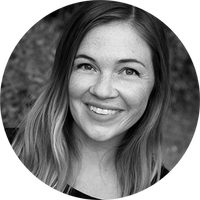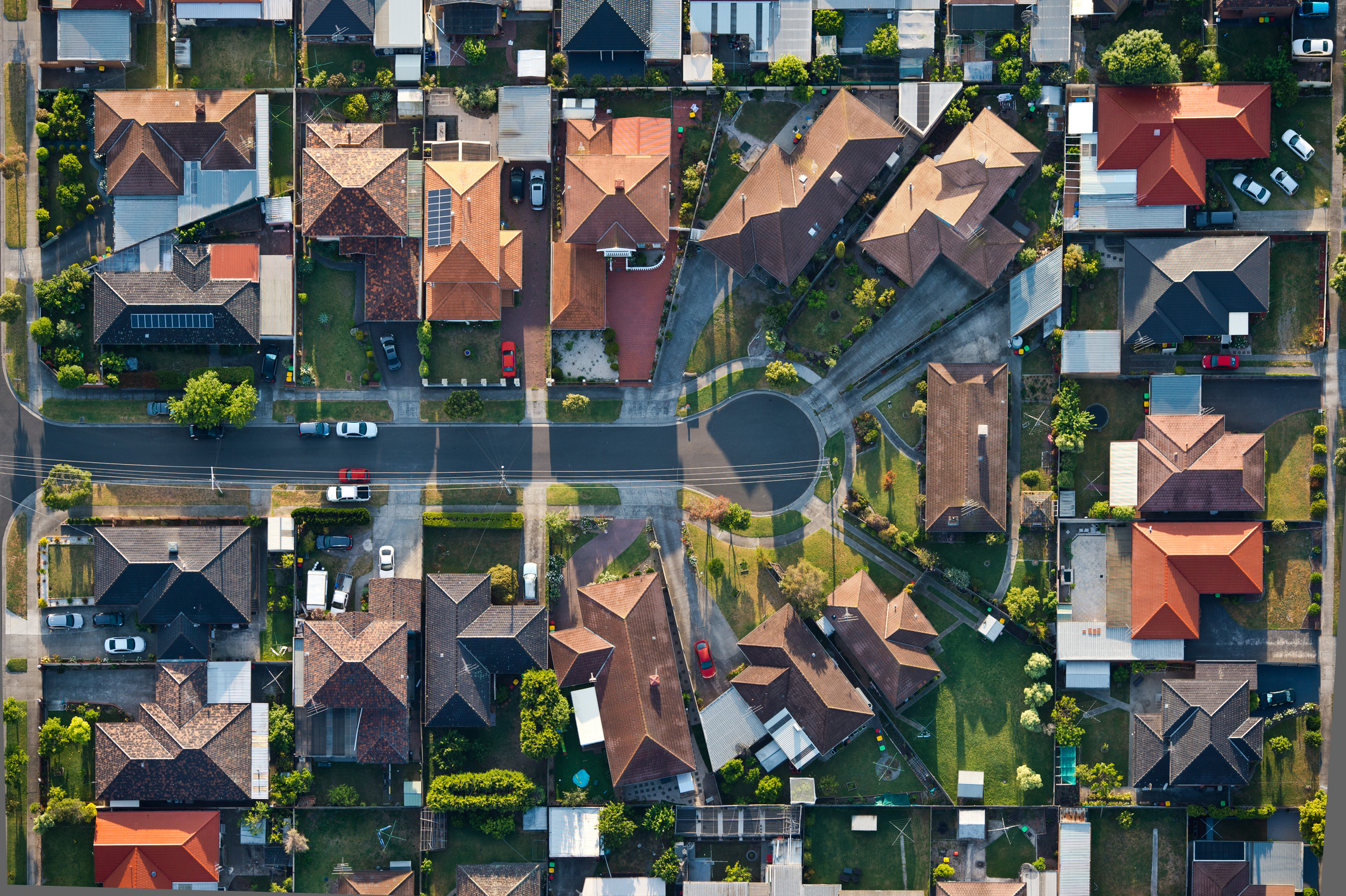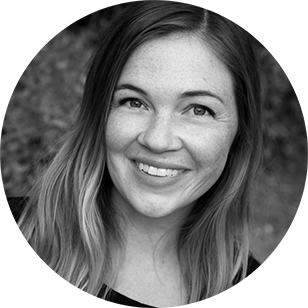How to buy a house before you're 30
Expert tips for getting on the property ladder


A free daily email with the biggest news stories of the day – and the best features from TheWeek.com
You are now subscribed
Your newsletter sign-up was successful
My husband and I bought a house when I was 29 (and he was 30), and it was the best financial decision we ever made.
This is an obnoxious piece of advice, I know, especially for millennials dealing with heavy financial burdens like student loans and pricey rents. I get it — I'll be paying off NYU grad school for the rest of my life. But if you can swing it, focus on saving for a down payment, because buying will get you started on the "property ladder" and pay off throughout your life.
I'm a person who craves a sense of security and community, and so home ownership has always been a goal. Owning a home gives me peace of mind. And though there are psychological benefits, the financial benefits of owning might be even greater. "The biggest benefit of getting into the real estate market with so many years ahead of you is that you are in a unique position to build a lot of equity," explains realtor Alison Gilbert of The Rental Girl. (Gilbert helped us buy our first — and second — home.) "Even if it isn't the house you are going to stay in forever — chances are you are going to sell, make a profit, and invest that money into another property — usually one that you probably wouldn't have been able to acquire if you hadn't had the profit from a previous sale to help you with a down payment."
The Week
Escape your echo chamber. Get the facts behind the news, plus analysis from multiple perspectives.

Sign up for The Week's Free Newsletters
From our morning news briefing to a weekly Good News Newsletter, get the best of The Week delivered directly to your inbox.
From our morning news briefing to a weekly Good News Newsletter, get the best of The Week delivered directly to your inbox.
I'm not a financially minded person; I know nothing about stocks or investments. But even I can see the value in gaining equity. And when it comes to rent vs. a mortgage payment, you might be surprised at which number is lower. "In areas of the country where rents are extremely high (like here in L.A.) it can make a lot of sense to buy — if you are already budgeting $3,000 per month for a lease, you should consider scrounging together enough for a down payment and looking into purchasing," says Gilbert. Of course, your payment depends on where you rent, and how much you put down, but a lot of people assume that a mortgage will be more than their rent. This is not always true! Especially when you consider the tax advantages of ownership. And with a mortgage, your money is working for you, rather than a landlord. "When you rent you are already paying a mortgage. It's just that you're paying someone elses'" says Keller Williams realtor Sara Skelton.
Speaking of paying someone else's bills, when I was renting, I really did not enjoy landlord shenanigans. After renting seven places, we've had wonderful, fair landlords (one was even a friend!), but we've also been taken advantage of. In Santa Cruz, our house came with fleas and an ever-present gas leak. The landlord kept our deposit for a mystery door that allegedly had to be replaced. Before we bought, we rented a lovely art deco apartment in Los Feliz from landlords who kept our deposit due to "plumbing repairs" that never happened.
Escaping our landlords' clutches was a big motivation to buy, but there's never a "perfect" time to make such a huge life decision. "I think too many people wait until they think they are able to afford the home of their dreams — only to be disappointed when they are finally ready to purchase that they have to make a million sacrifices," says Gilbert. "If you can adjust your expectations early on, buy something that has potential in an up-and-coming neighborhood, you are well on your way to being able to 'step up' in few years and get closer to that dream home," she explains.
Many first-time buyers have financial help, but if you aren't so lucky, it can still be done! Getting married young (I was basically a child bride at 25 by NYC and L.A. standards) enabled us to share household bills and merge finances, which let us save money. The financial focus of our 20s was saving a chunk of cash. It wasn't a huge down payment by any means, but FHA loans designed for first-time homeowners allow you to put down as little as 3.5 percent. (Note that this isn't ideal; Gilbert advises anyone buying a house in this market to try — if at all possible — to have at least a 20 percent down payment.)
A free daily email with the biggest news stories of the day – and the best features from TheWeek.com
Skelton advises potential buyers to save as much as possible. "Keep your lifestyle modest and don't spend your money frivolously," she says. "Eating out, etc. can suck your money. You're going to need that cash for your down payment."
Once we decided to buy, we got pre-approval for a mortgage and started looking at our favorite (affordable) neighborhoods. "Location location location" is a real estate cliche for a reason. Where you buy absolutely makes all the difference. If you're looking for your first house, your best bet is in a neighborhood where property values are rising. Ideally you can suss out the next trendy neighborhood, but of course that's easier said than done. An up-and-coming area is likely to have affordable homes, which is perfect for your purposes. Neighborhoods with great schools are likely to be more established, and more expensive. But school districts and crime might not be as big of a factor for young buyers, notes Skelton. "That's when you should be thinking of equity potential. Where are you going to get the best bang for your buck?"
Of course you should also love where you live, so don't choose a home solely on resale potential. We lucked out when we moved to the border of Eagle Rock and Highland Park because it was where we could afford, but also an area we loved. Fortuitously, home prices skyrocketed in northeast L.A., so we were able to move to a slightly larger house (four minutes away) when I was pregnant with our second child because we had gained equity. Buying as soon as possible has enabled us to live in our current home: a three-bedroom, two-bath with a great local public school. Which may sound like basic requirements to, say, buyers on House Hunters, but an affordable home with a good school is hard to come by in pricey Los Angeles!
A key factor in our ability to buy young was timing. We bought before prices surged; timing is everything with real estate. Of course, we can take no credit for the market upswing, but had we continued to wait we might not have been able to afford a house at all. Although it's currently a seller's market, you may still want to consider buying. "In the end it comes down to the same thing — it is better to get in the game now than to wait another year — where you will inevitably lose even more buying power with no guarantee that prices will be lower or competition less," says Gilbert. "Unless there is some reason to wait, like you expect a large inheritance or bonus or some other influx of money, the sooner you can get into the game the better."
If you can't afford a single-family home in this market, consider buying a small condo or a more affordable house and get roommates to help with the mortgage. Fixers are also easier to get than turnkey properties. We rolled the dice and bought our current home as-is, and it was a less competitive situation for that reason.
Interest rates are another piece of the puzzle to consider. "Even though it's crazy out there, interest rates are still historically low," says Skelton, who points out that your mortgage rate determines your monthly payment. So although home prices are high, a low interest rate might still mean an affordable monthly payment.
You'd be hard-pressed to find people who regret buying early in life. "Almost all of my clients wish they had bought earlier," shares Skelton. "I have not heard from a single client that wishes they had waited longer to buy." It's not always easy, but it might be worth it.
To sum it all up, here are some tips for young would-be home buyers from Gilbert and Skelton:
Choose the right team. Skelton enthuses: "Make sure you have a good direct mortgage broker and an experienced realtor!"
Consider a fixer. "If you have imagination you could buy a house, do a little remodeling, and have built-in equity," says Skelton. Gilbert adds: "Renovating, updating, and adding style to your home is the biggest way to increase your home's value which is great for when you sell or for when you want to refinance." She cautions buyers not to get caught up in staging or details, but to look at the big picture. "When a home is in a great location, has a good layout, and enough bedrooms and bathrooms — everything else can be fixed in most cases!"
Don't be afraid of risk. "Stretching your budget is not always a bad thing," says Gilbert. "When you are young you are likely to be just at the beginning of your earning potential. What may feel like a stretch now to afford a home will probably feel way more comfortable in a year or two. Buying a home is a risky endeavor and being responsible is important — but don't be too risk averse. Stretching yourself to get into a home now can pay off big in the future."
Shoot for a house. "If possible buying a house is preferable because in a condo you have HOA fees and those are forever," says Skelton. "Houses tend to build equity faster than condos."
Research the neighborhood. "Neighbors will tell you everything (good or bad) about the neighborhood," says Skelton, who also advises driving through your desired area at various times of day and night.
Don't live above your means. Watch your spending, and ask yourself if you really need that bag, or next round of drinks. "Have a few credit card accounts but pay them off in full every month," says Skelton. "Keep an eye on your credit report." And pay your taxes!
Have an emergency house fund. "Always have that cash in case you lose your job or something in your house needs to be repaired," Skelton cautions.
Assess your situation. "If your job is pretty secure and you don't foresee any major career changes in the near future — if you can see yourself staying in the same city for three to five years, than it's a great idea," says Gilbert.
Try out a mortgage. "Before you are ready to buy, try figuring out what kind of home you'd be interested in and approximately how much the monthly payments would be on a purchase. If it's more than you are currently paying in rent — try setting aside that extra money every month for 6 months and see how it feels," advises Gilbert. "This is a great way to get comfortable with mortgage payments and save money at the same time!"
Writer and blogger Lindsey Hunter Lopez is currently immersed in the world of parenting thanks to her two small children. Her work has appeared at Parents, SheKnows.com, L.A. Parent, OK!, CNN, FOX News, and Preen, among other publications. Lindsey is a graduate of the University of California, Santa Cruz, and New York University. She's endlessly fascinated by parenting trends, subcultures, social media phenomena, and children's clothing.
-
 6 of the world’s most accessible destinations
6 of the world’s most accessible destinationsThe Week Recommends Experience all of Berlin, Singapore and Sydney
-
 How the FCC’s ‘equal time’ rule works
How the FCC’s ‘equal time’ rule worksIn the Spotlight The law is at the heart of the Colbert-CBS conflict
-
 What is the endgame in the DHS shutdown?
What is the endgame in the DHS shutdown?Today’s Big Question Democrats want to rein in ICE’s immigration crackdown
